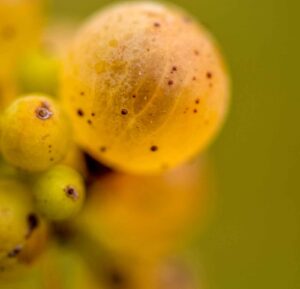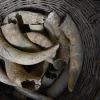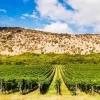Let me start with this; the wording „natural wine” is somewhat controversial since it may apply that those wines which do not fit this category perhaps are the opposite, un-natural. But this shouldn’t be the case; they sometimes may show an alternative form of aromas, flavours yet still should be flawless in their own respect. As so often it´s about the context and actual frame…
The French adapted from this year onwards an optional labelling; the terminology „vin méthode nature” has been introduced. Some of the rules for these wines are the following: they must be organically certified grapes, hand – picked, indigenous yeast are used as well as a maximum limit of 30 mg/l SO2 may permitted for those wines. Now in Hungary the word „natural” could be translated as „természetes”, within the legal framework of the 1997. XCCI. this term is reserved for basically all still (formally known as table) wines but the updated 2004. XVIII. wine law does not use this terminology anymore. The wording natural wine, natúrbor is picking up, however currently with no legal framework but this is to be changed, most likely from 2021 with the new wine legislation.
It still should be about the “fruit”
To stray along the legislations for a further moment the German terminology would be „Naturwein” which is not permitted in Austria to be used on the label. I assume for similar reasons as contemplated above, however the English terminology –natural wine- is fairly common usage, as it falls under the EC Regulation (No 834/2007).
While some may say natural wine is hard to be certified and for the same reason not easy to explain, other than minimal or low intervention wines, all too often sulphur dioxide (SO2) levels are set as a specific, measureable quality.
Some styles are just easier to define such as orange wine or even pét-nat. Yet sticking to the Austria which has a number of good examples in this category and through the strict appellation –DAC- system are certainly a wine country to copy, adapt good examples. Their wine law (Bundesgesetzblatt 184. Verordnung Weinrechts-Sammelnovelle 2018) says on such wines the following:
Wines within the category of PGI (Landwein) if shown a hazy appearance and oxidative note may not be seen as a wine fault and the additional terminology „orangewein” / „orangewine” …. „natural wine” may be used as an exchange terminology as well for those wineries who work according to the organic (EU 517/2013) principles. No chaptalisation as well as no sweetening is allowed, bentonite and sulphur dioxide the only permitted additives with later permitted as maximum 70 mg/l total SO2. The German wording „Naturwein” is not permitted.
With the new wine legislation in Hungary the „naturalwine” Hungarian terminology would be „natúrbor” with similar strict regulations at some points even stricter than the Austrian (e.g. SO2 levels) example. Yet based on my opinion this particular style has often a strong base of followers which is rather driven by emotions. Meaning if you like the approach, philosophy of the producer as well as sometimes overly „funky” notes it may overshadow the objective judgment. I don’t mind if typicity of variety and closer origin is lost, but there should still be an enjoyment factor evident and free of faults within the context of “wine” as beverage tracing it to the raw material, the grapevine, the fruit.
Nature in forefront
So if we all agree of fault – free wines we only have to set the criteria’s of judgement what „faults” are considered and may even the threshold levels of perception.
Based on my experience and as a member of the Hungarian Wine Expert Commission –who are assessing wines without closer origin- the majority of the most common faults within this category are:
- mousiness
- reduction and volatile sulphur content
- brettanomyces
- volatile acidity, acetic acid in the from of vinegar
Certainly there may a threshold level for certain faults above, like for brettanomyces (brett), according to the AWRI 425 µg/L of 4-ethylphenol (4-EP) and 4-ethylguaiacol (4-EG) is reported to be 110 µg/L, -just to name two- may have an negative impact on the quality of the wine but this very much depends on the style of the wine too.
I’m not a beer drinker, but there are a number of small scale beers on the market which do have brett induced and which openly embrace this. On my recent visit to Brussels I did taste the Gueuze Cantillon, spontaneous fermentation beer, entirely made up of Lambic. It’s made of organic wheat, malted barley, dried hops a sour beer and it’s suggested it does increase over year in quality, a kind of „vintage character” may even suggested. Certainly a funky style of beer by all means with personality which people usually love or hate.
Even in coffee you can discover such controversy, Kenyan coffee is often associated with „tomato” note, being a give away in „blind tasting” cuppings. Yet based on a survey and publication on the flavour pyramid, it’s not something which experts may desire. It does depend in my point of view on the threshold levels as well as the type of tomato (green, ripe, juicy, stalk, fruit/vegetable) as well as the actual context.
And this is it: context matters!
Hence, it’s not all black and white; there should be guidelines set discussing wine since there is a wide range of styles, from the conventional over organic and to the very low intervention ones.
Some of my recommended wineries in Hungary with the category (orange wine, organic, low intervention & co.) who I believe have some really good, exciting examples are the following:
Perfect introduction – always „spot on”
- Bott Winery, Tokaj
- Dobosi Winery, Balatonfüred-Csopak
- Pálffy, Balaton-felvidék
- Pelle Winery, Tokaj
- Szászi Winery, Badacsony
- Szecskő Tamás, Mátra
- Tokaj – Hétszőlő, Tokaj
- Zoltán Demeter, Tokaj
Next step, funky yet advanced
- Hummel, Villány
- Losonci Bálint, Mátra
- Pók Tamás, Eger
- Pósta Borház, Szekszárd
- Weninger Winery, Sopron
- Wetzer Péter, Sopron
Advanced level, increasingly funky but worth to watch out:
- Ábeles Présház (Imre Halász), Somló
- Bencze, Badacsony
- Meinklang, Somló







